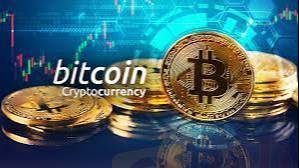
2025-02-06 19:51
Na indústriaThe Role of Education in Economic Development
#firstdealofthenewyearastylz
Education plays a vital role in economic development, serving as a key driver of economic growth, poverty reduction, and improved living standards. Here are some ways education contributes to economic development:
Human Capital Development
1. *Increased productivity*: Educated workers are more productive, efficient, and innovative.
2. *Skilled workforce*: Education provides the skills and knowledge required for various industries and occupations.
3. *Entrepreneurship*: Education fosters entrepreneurship, leading to the creation of new businesses and jobs.
Economic Growth
1. *Higher earning potential*: Educated individuals earn higher incomes, contributing to increased economic output.
2. *Increased economic mobility*: Education helps individuals move up the economic ladder, reducing poverty and income inequality.
3. *GDP growth*: Education is positively correlated with GDP growth, as educated workers contribute to increased productivity and innovation.
Poverty Reduction
1. *Reduced poverty rates*: Education is a key factor in reducing poverty rates, as educated individuals are more likely to secure better-paying jobs.
2. *Improved living standards*: Education leads to improved living standards, as educated individuals are more likely to have access to better healthcare, housing, and nutrition.
Social Benefits
1. *Improved health outcomes*: Education is linked to improved health outcomes, as educated individuals are more likely to make informed health decisions.
2. *Reduced crime rates*: Education is associated with reduced crime rates, as educated individuals are less likely to engage in criminal activity.
3. *Increased civic engagement*: Education fosters civic engagement, leading to increased participation in democratic processes and community development.
Challenges and Solutions
1. *Access to education*: Ensure equal access to quality education for all, regardless of socioeconomic background or location.
2. *Quality of education*: Improve the quality of education by investing in teacher training, infrastructure, and curriculum development.
3. *Relevance of education*: Align education with labor market needs, ensuring that graduates possess the skills required by employers.
In conclusion, education is a critical driver of economic development, contributing to increased productivity, economic growth, poverty reduction, and improved living standards. Investing in education is essential for building a skilled and competitive workforce, promoting economic growth, and reducing poverty and inequality.
Gostar 0

bolaji1913
Pialang
Discussões populares
Análise de mercado
Brasileiros FX
Análise de mercado
Brasileiros no FOREX
Análise de mercado
Don't buy Bitcoin now! Look at my review and description in the print!
Análise de mercado
análises do mercado financeiro ao vivo confira
Na indústria
Não consegui sacar meus peofits
Na indústria
Não é possível retirar
Categoria do mercado

Plataforma

Exibições

IB

Recrutamento

EA

Na indústria

Mercado

Índice
The Role of Education in Economic Development
 Hong Kong | 2025-02-06 19:51
Hong Kong | 2025-02-06 19:51
#firstdealofthenewyearastylz
Education plays a vital role in economic development, serving as a key driver of economic growth, poverty reduction, and improved living standards. Here are some ways education contributes to economic development:
Human Capital Development
1. *Increased productivity*: Educated workers are more productive, efficient, and innovative.
2. *Skilled workforce*: Education provides the skills and knowledge required for various industries and occupations.
3. *Entrepreneurship*: Education fosters entrepreneurship, leading to the creation of new businesses and jobs.
Economic Growth
1. *Higher earning potential*: Educated individuals earn higher incomes, contributing to increased economic output.
2. *Increased economic mobility*: Education helps individuals move up the economic ladder, reducing poverty and income inequality.
3. *GDP growth*: Education is positively correlated with GDP growth, as educated workers contribute to increased productivity and innovation.
Poverty Reduction
1. *Reduced poverty rates*: Education is a key factor in reducing poverty rates, as educated individuals are more likely to secure better-paying jobs.
2. *Improved living standards*: Education leads to improved living standards, as educated individuals are more likely to have access to better healthcare, housing, and nutrition.
Social Benefits
1. *Improved health outcomes*: Education is linked to improved health outcomes, as educated individuals are more likely to make informed health decisions.
2. *Reduced crime rates*: Education is associated with reduced crime rates, as educated individuals are less likely to engage in criminal activity.
3. *Increased civic engagement*: Education fosters civic engagement, leading to increased participation in democratic processes and community development.
Challenges and Solutions
1. *Access to education*: Ensure equal access to quality education for all, regardless of socioeconomic background or location.
2. *Quality of education*: Improve the quality of education by investing in teacher training, infrastructure, and curriculum development.
3. *Relevance of education*: Align education with labor market needs, ensuring that graduates possess the skills required by employers.
In conclusion, education is a critical driver of economic development, contributing to increased productivity, economic growth, poverty reduction, and improved living standards. Investing in education is essential for building a skilled and competitive workforce, promoting economic growth, and reducing poverty and inequality.
Gostar 0
Também quero comentar.
Perguntar
0Comentários

Ainda não há comentários. Faça o primeiro.

Perguntar
Ainda não há comentários. Faça o primeiro.